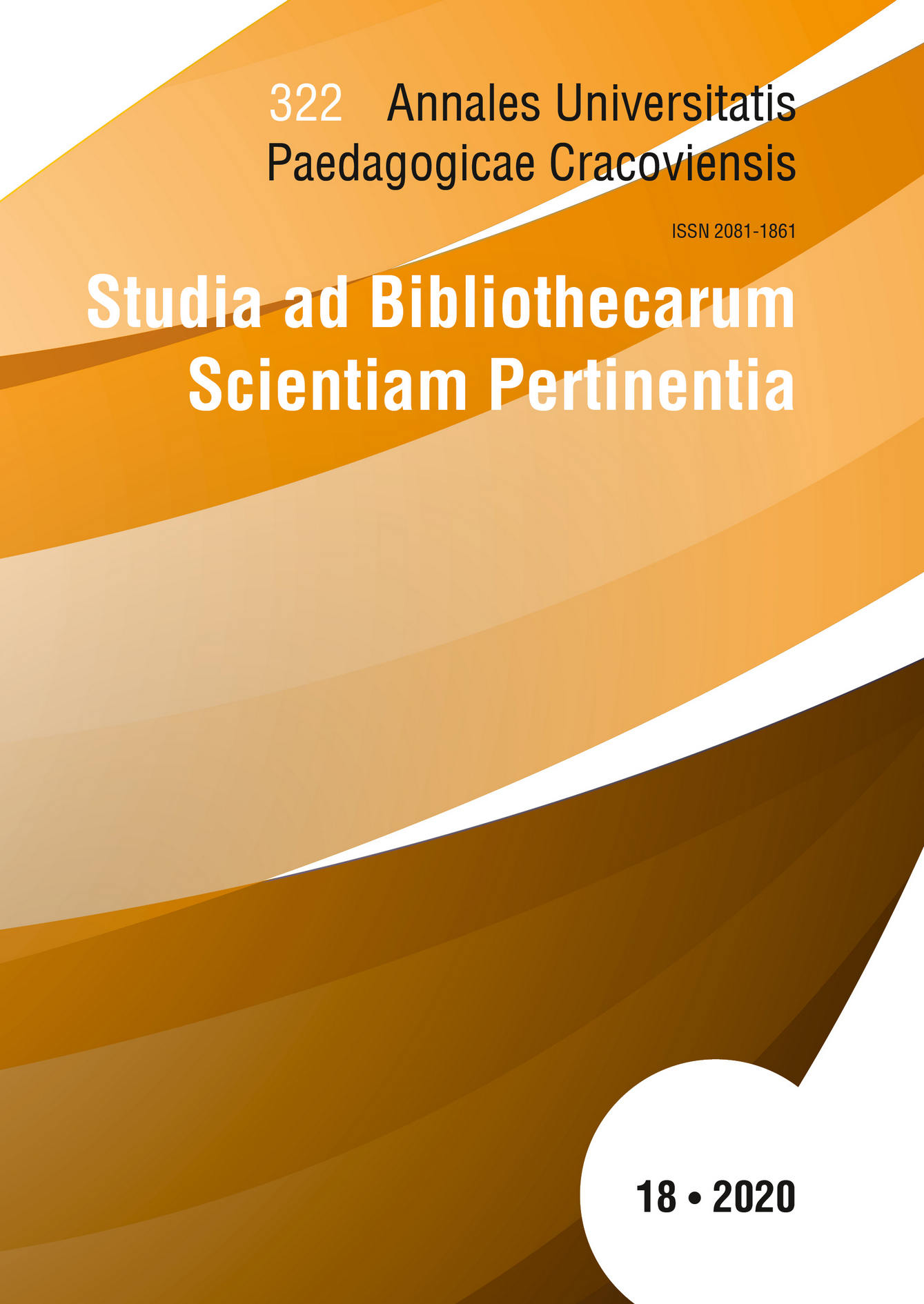An overview of researchers’ visions for human security and survival in the age of big data and artificial intelligence
DOI:
https://doi.org/10.24917/20811861.18.24Keywords:
Big data; forecasting; data management; artificial intelligence; Internet of Things; security; information security cultureAbstract
Big Data is the subject of research of many specialists, including IT specialists, data librarians and data researchers, data brokers, analytical and information services, and even artists. This new method of data mining causes changes in all areas of human life; thus, we have on our hands a tool that can be used for people’s good and security, but which can also destroy our civilization. These two possibilities inspire researchers to make predictions about a future dominated by artificial intelligence, the Internet of Things, and new ways of extracting data from Big Data that allows them to predict and control these objects by seeing correlations between them. This gives unlimited power to data silo holders and algorithms. The article presents scientists’ fears about the threats generated by these technologies and formulates them as questions about the condition of humanity in the future. The consequences of creating forecasts without considering human deficiencies in analyzing data and the perils of creating incomplete knowledge are also presented. Forecasting requires the ability to analyze and conduct intelligent interpretation through people, not just artificial intelligence systems. Forecasting also requires the ability to ask questions, which is clearly the domain of man.
References
Angwin J., Społeczeństwo inwigilowane. W poszukiwaniu prywatności, bezpieczeństwa i wolności w świecie permanentnej inwigilacji, Warszawa 2017.
Assange J., Appelbaum J., Müller-Maguhn, Zimmermann J., Cypherpunks. Wolność i przyszłość Internetu, Gliwice 2013.
Batorowska H., Klepka R., Wasiuta O., Media jako instrument wpływu informacyjnego i manipulacji społeczeństwem, Kraków 2019.
Bezpieczeństwo informacyjne i medialne w czasach nadprodukcji informacji, red. H. Batorowska, P. Motylińska, Warszawa 2020.
Bauman Z., Lyon D, Płynna inwigilacja. Rozmowy, Kraków 2013.
Bostrom N., Superinteligencja. Scenariusze, strategie, zagrożenia, Gliwice 2016.
Człowiek na rozdrożu, Sztuczna inteligencja – 25 punktów widzenia, red. J. Brockman, Gliwice 2020.
Carr N., Płytki umysł. Jak Internet wpływa na nasz mózg, Gliwice 2012.
Gołębiewski Ł., Śmierć książki. No future book, Warszawa 2008.
Gołębiewski Ł., Książka/book. Szerokopasmowa kultura, Warszawa 2009.
Goodman M., Zbrodnie przyszłości. Jak cyberprzestępcy, korporacje i państwa mogą używać technologii przeciw Tobie, Gliwice 2016.
Jasińska K., Big data – wielkie perspektywy i wielkie problemy, [w:] Megatrendy i ich wpływ na rozwój sektorów infrastrukturalnych, red. J. Gajewski, W. Paprocki, J. Pieriegud, Gdańsk 2015, s. 56-81.
Jenkins H., Kultura konwergencji. Zderzenie starych i nowych mediów, Warszawa 2007.
Kelly K., Nieuniknione. Jak inteligentne technologie zmienią naszą przyszłość, Warszawa 2017.
Kerckhove D., Inteligencja otwarta. Narodziny społeczeństwa sieciowego, Warszawa 2001.
Leśniak-Moczuk K., Społeczeństwo równości czy zniewolone danetyzacją, „Nierówności Społeczne a Wzrost Gospodarczy” 2017, nr 4.
Materska K., Zarządzanie informacją w warunkach wiedzy niedoskonałej, [w:] Zarządzanie informacją, red. W. Babik, Warszawa 2019, s. 338-354.
Mayer-Schönberger V., Cukier K., Big data efektywna analiza danych. Rewolucja, która zmieni nasze myślenie, pracę i życie, Warszawa 2017.
Miller M., Internet rzeczy. Jak inteligentne telewizory, samochody, domy i miasta zmieniają świat, Warszawa 2016.
O’Neil C., Broń matematycznej zagłady. Jak algorytmy zwiększają nierówność i zagrażają demokracji, Warszawa 2017.
Polko P., Polko R., Bezpiecznie już było. Jak żyć w świecie sieci, terrorystów i ciągłej niepewności, Gliwice 2018.
Schneier B., Dane i Goliat. Ukryta bitwa o Twoje dane i kontrolę nad światem, Gliwice 2017.
Silver N., Sygnał i szum. Sztuka prognozowania w erze technologii, Gliwice 2014.
Wolfram S., Sztuczna inteligencja i przyszłość cywilizacji, [w:] Człowiek na rozdrożu. Sztuczna inteligencja – 25 punktów widzenia, red. J. Brockman, Gliwice 2020.
Wójcik M., Rozszerzona rzeczywistość w usługach informacyjnych bibliotek, Kraków 2018.
Zych J., Teleinformatyka dla bezpieczeństwa 2.0, Poznań 2019.
Downloads
Published
How to Cite
Issue
Section
License
Copyright (c) 2020 Annales Universitatis Paedagogicae Cracoviensis | Studia ad Bibliothecarum Scientiam Pertinentia

This work is licensed under a Creative Commons Attribution-NonCommercial-NoDerivatives 4.0 International License.

